A “great replacement theory” advocate to represent the U.S. on the international stage. An alleged white nationalist to head defense. A vaccine conspiracy theorist to lead one of the country’s main public-health agencies.
With each announcement of a Cabinet or White House pick, President-elect Donald Trump is assembling a team of players with a long history of opposition to policies that support Black Americans and handing his team a policy agenda that deeply threatens our communities.
Trump’s nominees are overwhelmingly anti-Black Lives Matter and anti-diversity, equity, and inclusion. They’re also peddlers of “reverse racism,” as well as outspoken opponents of the browning of the country.
One of Trump’s main considerations for a Cabinet or White House role isn’t relevant policy expertise but rather loyalty to him, as he taps people who have a track record of following his orders.
This unorthodox selection process — combined with some nominees’ contributions to the infamous conservative manifesto Project 2025 — has many worried about what the next administration has in store for Black communities.
Here are some of Trump’s more high-profile picks and overviews of where they stand on issues of race and identity that will have a major impact on Black life over the next four years — and possibly longer.
This story will be updated as needed.
Pam Bondi, Attorney General
Responsibilities: Bondi would lead the U.S. Department of Justice and function as the federal government’s top law enforcement officer, representing the U.S. in legal matters and advising the president on request.
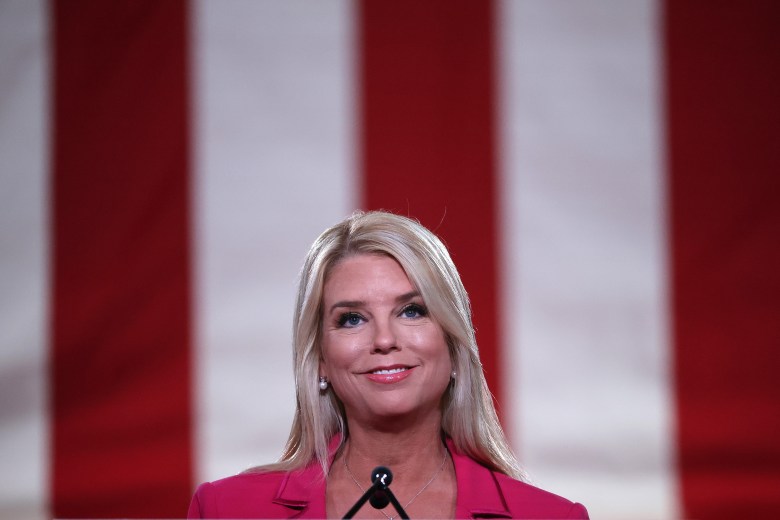
Trump’s plans: On the campaign trail, Trump inveighed against the DOJ for its pursuit of two criminal cases against him — the Jan. 6 case, and the classified documents case. Since Trump’s election victory, the DOJ has moved to wind down these cases, since department policy says that a sitting president can’t be prosecuted. Trump wants to overhaul the DOJ and staff it with people willing to do his bidding and turn the law against his supposed enemies, including racial justice activists.
Who is she? After his first pick, former U.S. Rep. Matt Gaetz of Florida, withdrew his name for consideration amid allegations of sexual misconduct, Trump tapped Bondi, a former Florida attorney general and longtime ally.
Bondi entered politics as part of the Tea Party movement that arose in opposition to former President Barack Obama. She spearheaded a failed attempt to overturn Obamacare in 2012, according to CNN, and has become a fierce Trump loyalist in the years since. She was part of his rapid response team during his first impeachment, in 2019.
Stephen Miller, Deputy Chief of Staff for Policy
Responsibilities: Miller will have a major influence on the administration’s future staffing hires for the White House and will train his attention primarily on homeland security, including immigration policy.
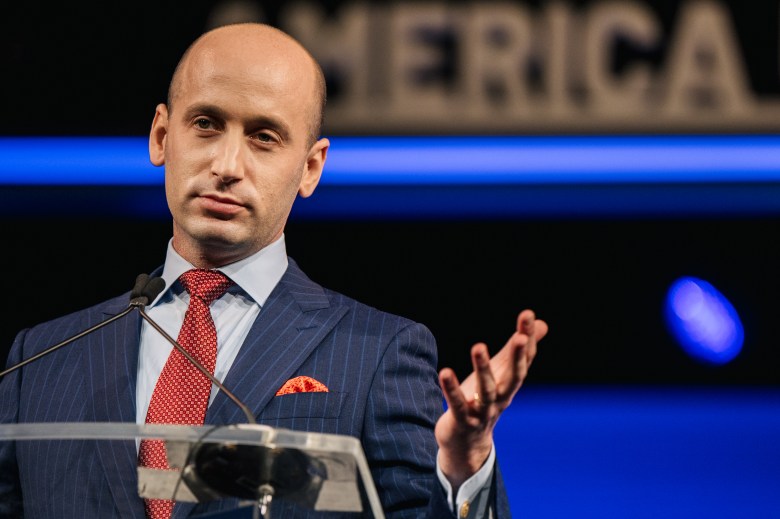
Trump’s plans: Trump has said that, the moment he enters office on Jan. 20, 2025, he wants to mobilize the military to carry out mass deportations of millions of undocumented migrants, legal challenges be damned. To do this, he needs Miller to supervise building camps “on open land in Texas near the border” to hold people awaiting deportation.
Who is he? As a senior policy adviser to Trump during his first administration, Miller shaped some of the harshest immigration policies put in place, including the Muslim ban and the family separation policy. After Trump’s first term, Miller established America First Legal, a group that contributed to Project 2025 and intends to weaponize civil rights legislation against “anti-white racism.” The group’s workings offer a window into the white-centered way that Miller not only sees the world but wants it organized.
Miller was a senior adviser on Trump’s 2024 presidential campaign. He’s the architect behind Trump’s plans for mass deportations. In recent months, as Trump and his allies have vilified Haitian migrants and endangered their lives, Miller has used social media to fuel the frenzy, espousing the zero-sum view that President Joe Biden wants to help Haitian migrants at the expense of Americans.
Robert F. Kennedy Jr., Secretary of the U.S. Department of Health and Human Services
Responsibilities: Kennedy would oversee the Centers for Disease Control and Prevention, the Food and Drug Administration, and the National Institutes of Health, among other key agencies. He also would be able to set regulations governing the approval of vaccines and new medical treatments, and he would have the power to declare public-health emergencies.
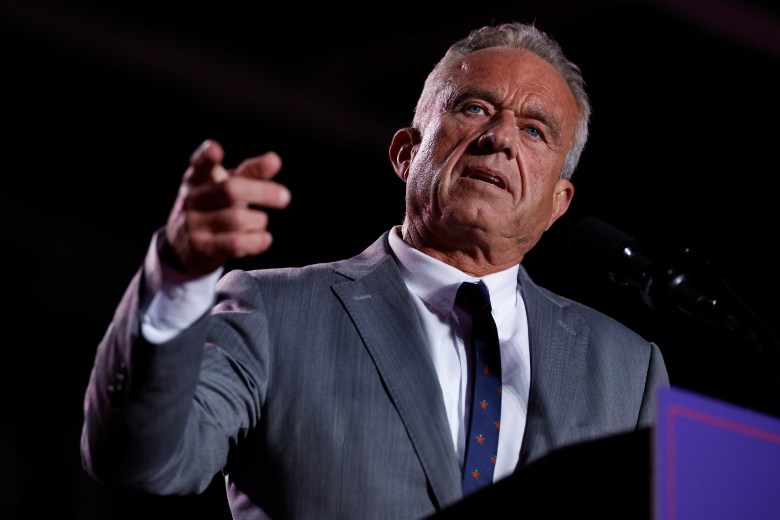
Trump’s plans: The president-elect’s campaign was thin on a vision for health policy, but he said that he would let Kennedy “go wild on health and dramatically shake things up.”
Who is he? Before his brief run in the 2024 race, where he hoped to peel Black voters away from the Democratic Party ticket, Kennedy was best known as a vocal conspiracy theorist, especially on the topic of vaccines.
He produced a documentary claiming that COVID vaccines were designed to harm Black communities and has peddled the lie that COVID targets Black Americans. Asked earlier this year whether he regrets exacerbating vaccine skepticism in Black communities, Kennedy told NBC News, “No.”
U.S. Rep. Elise Stefanik of New York, U.S. Ambassador to the United Nations
Responsibilities: Stefanik would represent the U.S. at the U.N., where she also would be tasked with championing the country’s interests and managing relationships with the international community.
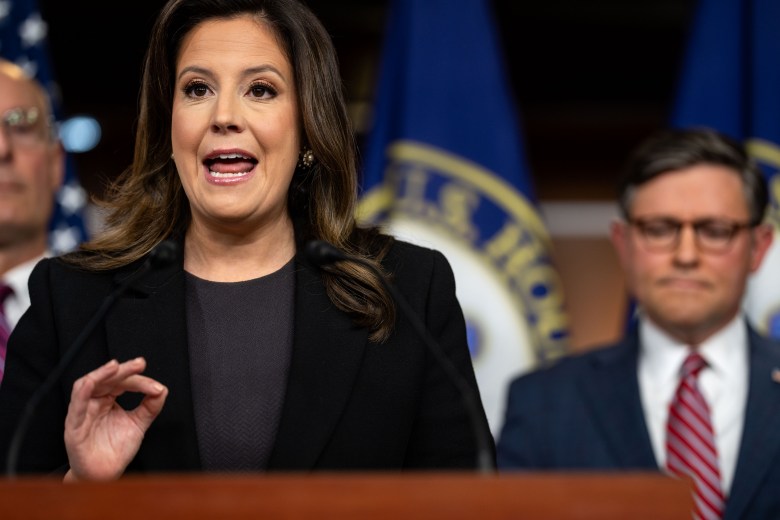
Trump’s plans: Some analysts expect Trump to “exploit [the U.N.] as a theater to pursue a conservative global social agenda,” as Richard Gowan, the U.N. director for the International Crisis Group, a think tank, told the Associated Press. This might include once again withdrawing the U.S. from the Paris climate agreement and exiting UNESCO, the U.N.’s educational and cultural agency.
Who is she? Stefanik represents a district in upstate New York and made a name for herself defending Trump during his impeachments. She also is a proponent of the “great replacement theory,” which promotes the idea that racial and ethnic minorities intentionally seek to replace white Americans, and has been hostile to the U.N. in the past. She recently called it a “corrupt, defunct, and paralyzed institution” that’s “beholden to bureaucracy.” Her racialized worldview could affect her engagement with majority-Black countries.
Additionally, Stefanik has attacked people who support Palestinians, whom Black Americans have long felt solidarity with. Recall the campaign she was a part of against Claudine Gay, the Black former president of Harvard University, after the Oct. 7 Hamas attack on Israel. “This was an attack on her race and her gender, not on how she handled antisemitism on Harvard’s campus or on the rigor of her scholarship,” Cornell William Brooks, a professor of the practice of public leadership and social justice at the Harvard Kennedy School, told Capital B.
Sen. Marco Rubio of Florida, Secretary of the U.S. Department of State
Responsibilities: As the U.S. secretary of state, Rubio would be the country’s primary diplomat, representing the forthcoming administration’s foreign policy agenda and helping maintain American alliances.
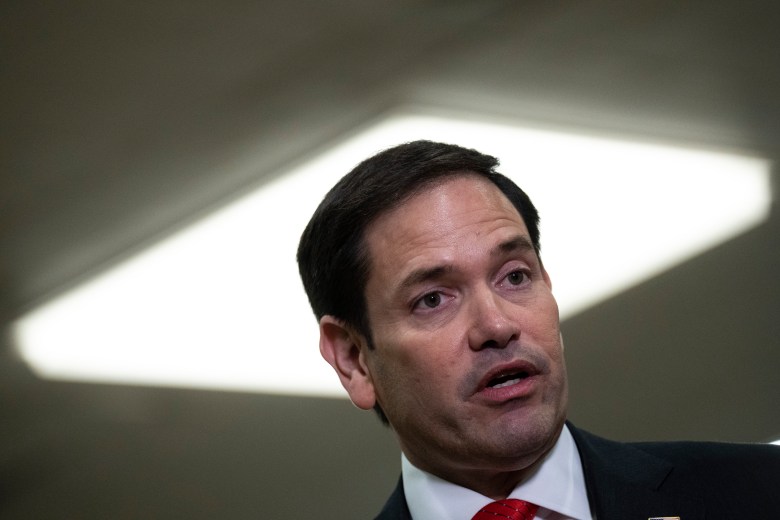
Trump’s plans: Some fear that Trump might eliminate bureaus within the department that don’t align with his positions, such as the Bureau of Population, Refugees, and Migration, which helps to resettle refugees, and the Bureau of Democracy, Human Rights, and Labor, which has investigated Israel’s violations of Palestinian rights.
Who is he? A onetime Trump critic who would be the first Latino to serve in this role, Rubio is no stranger to railing against the department’s diversity initiatives.
Just last year, he complained in a report that “woke is weak” — and that the department’s “misguided focus on wokeness has undermined its effectiveness and distracted from its duty to protect and promote America’s national interests.” He also added that such attention “will only undermine our efforts on the world stage.” Rubio’s remarks are more than a little concerning, since experts have, for years, stressed that greater diversity makes the department better and more efficient, and helps it to achieve its foreign policy goals.
Tulsi Gabbard, Director of National Intelligence
Responsibilities: Gabbard would lead the U.S. intelligence community and offer advice to Trump on issues relating to national security.
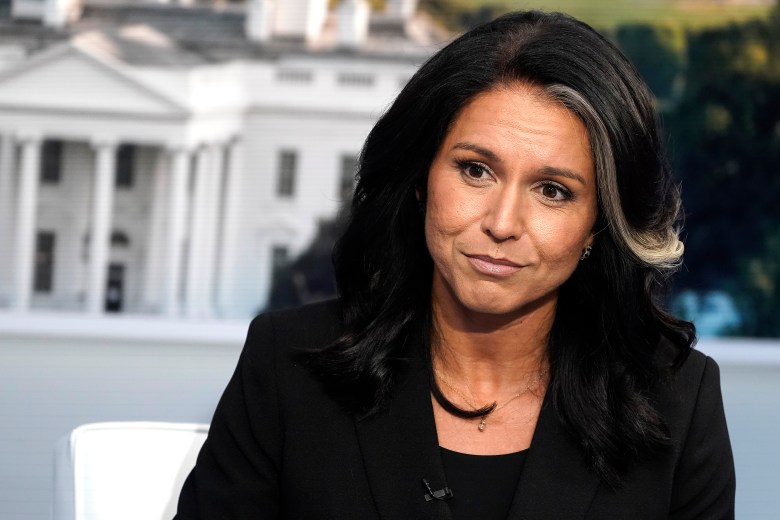
Trump’s plans: Russian President Vladimir Putin has showered Trump with praise since his election win, with many seeing this response as a signal that Russia expects friendly policy from the U.S., including an end to the conflict in Ukraine that’s favorable to Russia. This has raised concerns about whether Trump might be deferential to Russia in a way that de-prioritizes U.S. security interests.
Who is she? For years, people have speculated whether Gabbard, a former U.S. representative from Hawaii, might be a Russian asset. Gabbard, who has denied the accusations, has stood up for Trump’s cozy relationship with Putin, and has faulted the U.S. for Russia’s invasion of Ukraine, saying that the U.S. didn’t take Russia’s security concerns seriously.
Scrutiny of her possible foreign entanglements comes weeks after an election in which the FBI accused Russia of interfering in ways that impacted Black voters. During this past election cycle, Trump-friendly Russia was said to have made bomb scares against polling places in areas near Atlanta with large Black populations — a plot to suppress Black voter turnout. It’s unclear whether Gabbard would stand up for American interests in the face of such threats.
Pete Hegseth, Secretary of the U.S. Department of Defense
Responsibilities: Hegseth would manage the military, serving as the chief defense policy adviser.
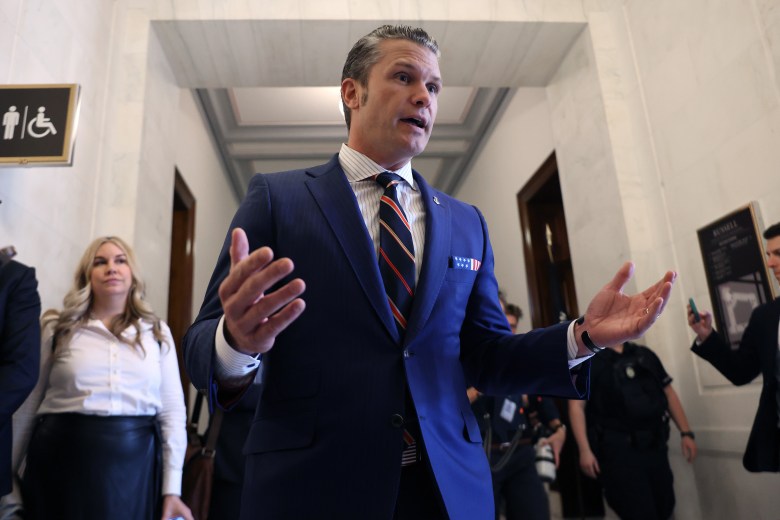
Trump’s plans: If the president-elect follows through on his pledge to use the military to carry out mass deportations, he might politicize it in a manner that could “spark a fight over reining in his authorities to deploy troops on U.S. shores,” as Politico put it. Trump is also expected to bring back policies from his first term, such as his transgender military ban.
Who is he? Fox News commentator and Army veteran Hegseth got booted from Biden’s inauguration because of his extremist tattoos, and he’s made no effort to hide his disdain for diversity in the military.
In the past, he’s claimed that racial discrimination in the military is a lie, groused that Black troops are promoted “simply based on their race,” and repeated the white nationalist rhetoric of the “great replacement theory,” according to a Washington Post review. Hegseth also has urged Trump to fire officers pushing what he calls a “woke agenda,” even though racial diversity has been shown to improve the effectiveness of military operations. Hegseth would replace Lloyd Austin, the first Black person in the post.
Brendan Carr, Chairman of the Federal Communications Commission
Responsibilities: Carr would be charged with regulating communications. This includes communication of all types: television, radio, and satellite, among others.
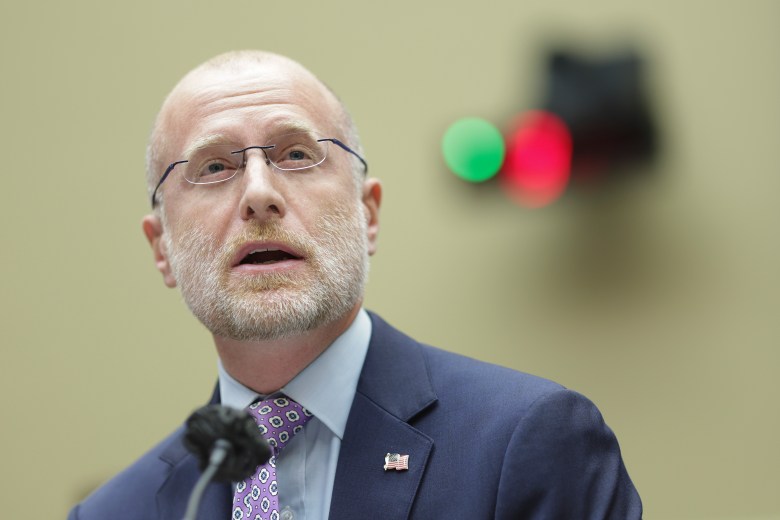
Trump’s plans: The FCC is an independent government agency, but that hasn’t stopped Trump from saying that he wants it under his thumb. During the campaign, he said that he wanted the FCC to revoke CBS, NBC, and ABC’s broadcast licenses — because he didn’t like how they covered him.
Who is he? FCC chairs usually zoom in on issues such as the digital divide. But not Carr, a telecommunications attorney. Trump’s choice for the position has been railing against diversity, equity, and inclusion efforts and against technology companies for supposedly censoring the free speech rights of election denialists.
An FCC member since 2017, when Trump appointed him, Carr wrote the Project 2025 chapter on the agency, claiming that one of the chief goals the FCC under the new administration should be “reining in Big Tech,” by which he largely means pushing back against companies’ good-faith attempts to do things such as eliminate the spread of election denialism. Like others in Trump’s orbit, Carr often talks about the importance of promoting a “diversity of viewpoints,” which in our current political climate is usually a way of elevating conservative voices, not racially diverse ones or equality-oriented ones.
Elon Musk and Vivek Ramaswamy, Heads of the “Department of Government Efficiency”
Responsibilities: According to a statement from Trump, the primary purpose of this government efficiency commission is to “slash excess regulations, cut wasteful expenditures, and restructure federal agencies.”
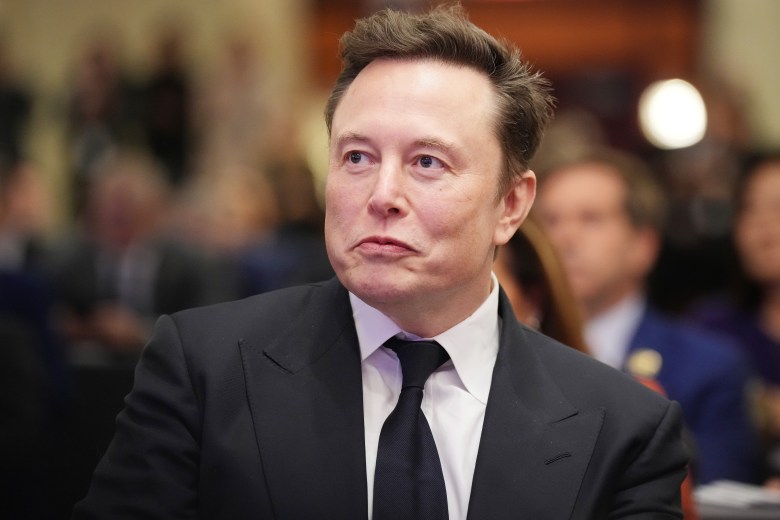
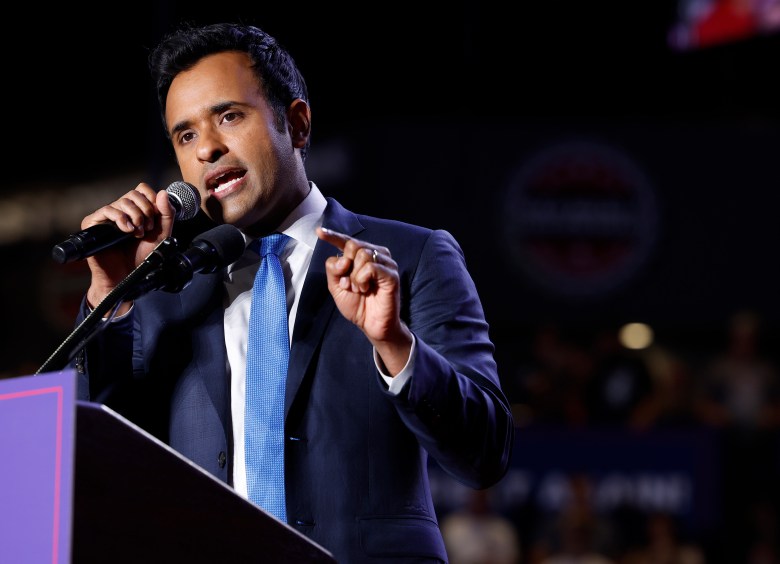
Trump’s plans: The president-elect said that he wants Musk and Ramaswamy to “provide advice and guidance from outside of Government.” Yet to be seen is how the commission would act on this advice, given that implementing changes of the scale Trump wants would require enormous political will from Congress.
Who are they? Trump has tapped Tesla and SpaceX CEO Musk and former rival Ramaswamy, a biotech entrepreneur, to lead the commission. The two men have built parts of their careers on smearing the significance of diversity in U.S. life, including at work.
Both men frequently spend their time bellowing about the supposed scourge of “wokeness.” Musk has lambasted the imaginary “woke mind virus” consuming society, and he was roundly criticized this year by civil rights groups for making the baseless claim that moves to increase racial diversity make workplaces less safe. Similarly, when Ramaswamy was running for the Republican Party nomination, he presented himself as an “anti-woke” activist, complaining about pushes for racial and gender equality and climate justice. At one point, he called Juneteenth a “useless” holiday.
Linda McMahon, Secretary of the U.S. Department of Education
Responsibilities: McMahon would be in charge of setting federal education policy, determining how the federal government’s education budget should be spent, how student achievement should be measured, and how to interpret federal regulations governing civil rights.
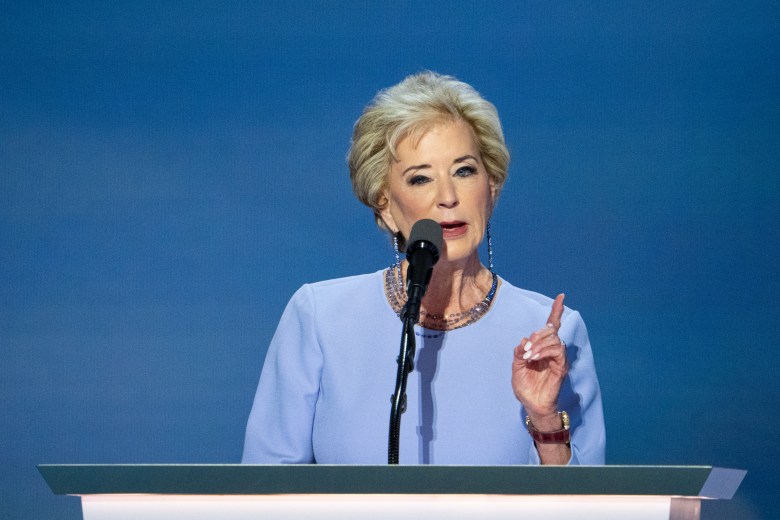
Trump’s plans: During the campaign, Trump frequently impugned the department for allegedly being run by “radicals, zealots, and Marxists” and vowed to halt federal funding to schools that embrace racial equality or support the rights and dignity of transgender students. More broadly, Trump has threatened to close the department, though it’s uncertain how McMahon would do this — closing the department would require an act of Congress.
Who is she? A former wrestling executive and a two-time U.S. Senate also-ran, McMahon has been a constant in Trump’s universe for years.
She donated $6 million to Trump’s campaign after he won his party’s nomination in 2016, and was the head of the Small Business Administration during his first stint in the White House. She has said that she initially wanted to be an educator.
South Dakota Gov. Kristi Noem, Secretary of the U.S. Department of Homeland Security
Responsibilities: Noem would be charged with overseeing domestic public safety, managing borders, enforcing immigration laws, and bolstering disaster preparedness.
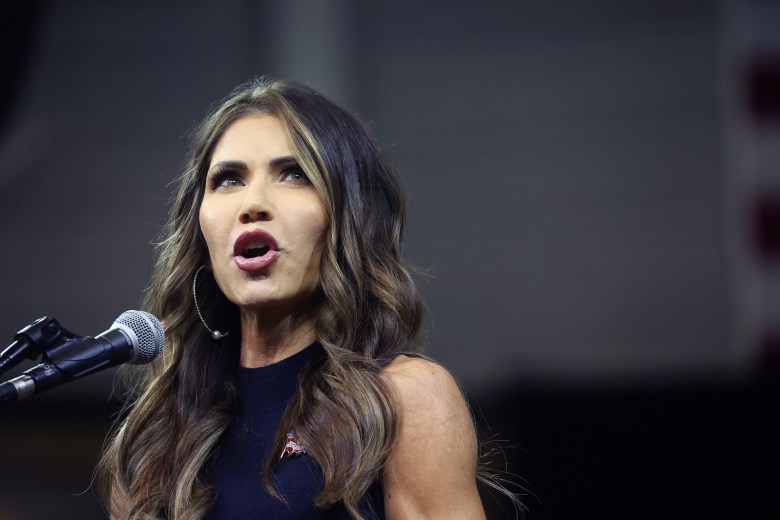
Trump’s plans: Noem would be a key figure in helping Trump to achieve his domestic policy agenda, in particular his logistically unwieldy scheme to carry out mass deportations of millions of undocumented migrants.
Who is she? Like many of Trump’s Cabinet and White House picks, Noem, who’s been the governor of South Dakota since 2019, is an advocate of a litany of conservative causes. She has battled against transgender rights and critical race theory, and she also opposed implementing public-safety restrictions to slow the spread of a pandemic that disproportionately harmed communities of color.
Additionally, Noem has been a loud critic of the Biden administration’s immigration policies, and on multiple occasions has deployed members of the South Dakota National Guard to the U.S.-Mexico border, which she calls a “war zone.”
Lee Zeldin, Administrator of the U.S. Environmental Protection Agency
Responsibilities: Zeldin would be responsible for setting and enforcing the country’s environmental laws and regulations.
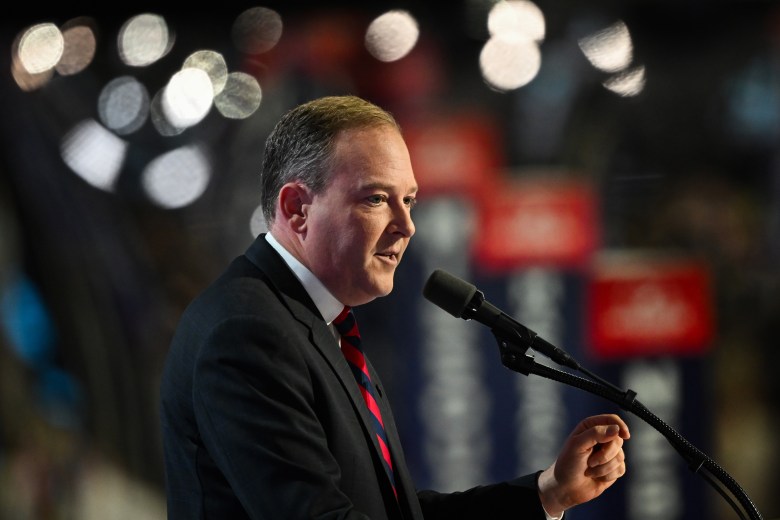
Trump’s plans: Trump has made plain that he wants to roll back dozens of the Biden administration’s environmental protection rules, including rules aimed at restricting greenhouse gas emissions that pollute the climate and disproportionately harm Black communities.
Who is he? A former U.S. representative for New York, Zeldin has a history of challenging environmental policies intended to help vulnerable communities burdened by climate change.
When he was a representative, Zeldin joined most other House Republicans in opposing Biden’s 2021 infrastructure bill, which addressed pollution from former industrial and energy sites, made communities of color more resilient to extreme weather events, upgraded power infrastructure, and eliminated lead pipes that contaminated drinking water.
Mehmet Oz, Administrator of the Centers for Medicare and Medicaid Services
Responsibilities: Oz would lead a vital agency that provides health insurance coverage to more than 150 million Americans and manages north of $1 trillion in spending each year.
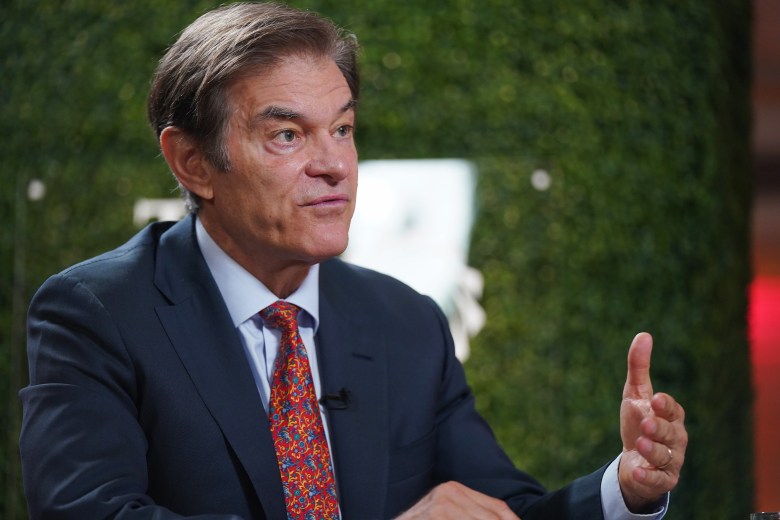
Trump’s plans: As with other agencies on this list, Trump wants Oz to shrink spending that the president-elect has deemed unnecessary. “[Oz] will also cut waste and fraud within our Country’s most expensive Government Agency, which is a third of our Nation’s Healthcare spend, and a quarter of our entire National Budget,” Trump said in a statement.
Who is he? Oz is known mostly for being a cardiothoracic surgeon turned television personality. He was a regular on billionaire media mogul Oprah Winfrey’s show.
He made an unsuccessful run for a U.S. Senate seat in 2022, campaigning as a Republican. And in the past — before his failed run for office — he supported Obamacare, according to CNN’s KFile, though a spokesperson at the time denied that Oz would have voted for Obama’s landmark law expanding health-care coverage.
Scott Turner, Secretary of the U.S. Department of Housing and Urban Development
Responsibilities: Turner would guide policies addressing fair housing laws, which deal with issues including homeownership and discriminatory housing practices.
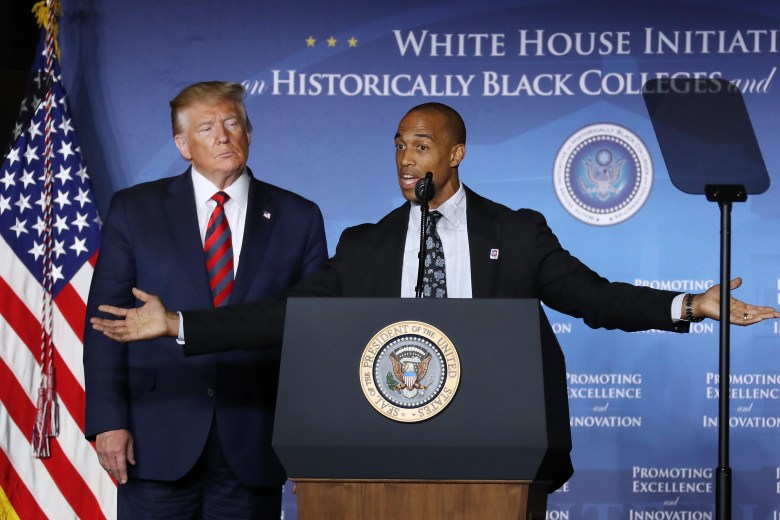
Trump’s plans: Analysts expect to see big budget fights in Trump’s second term, given that there will be fewer moderate Republicans who might be able to rein in the president-elect’s more authoritarian impulses. Another source of tension is likely to be Project 2025 — the conservative manifesto calls for, among other things, gutting a federal fund intended to grow the number of affordable housing units and strengthening work requirements for receiving federal housing subsidies.
Who is he? Trump’s lone Black Cabinet pick so far, Turner is a former professional football player and a former member of the Texas House of Representatives, where he served from 2013 to 2017.
During Trump’s first term, Turner was the executive director of the White House Opportunity and Revitalization Council, which worked on boosting “opportunity zones,” or areas beleaguered by high unemployment. While Trump often touted the initiative, research shows that it yielded mixed results, with well-off investors benefiting more than low-income residents.
Russell Vought, Director of the Office of Management and Budget
Responsibilities: Vought would be at the helm of developing and executing the administration’s spending and regulation policies.
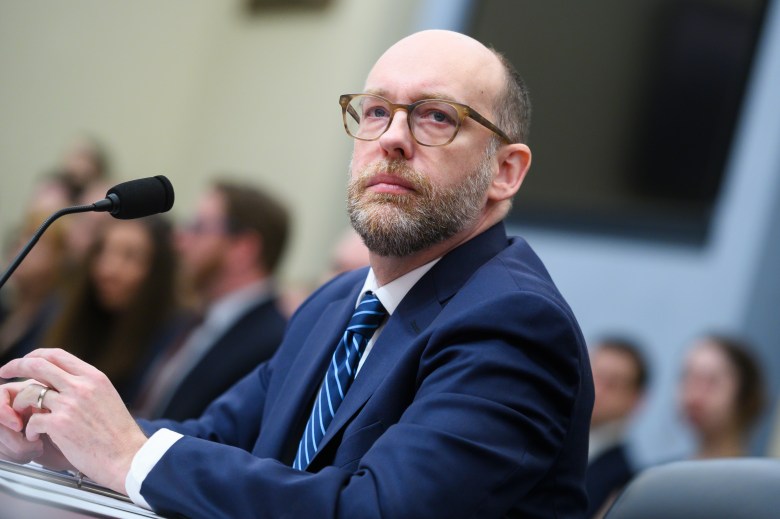
Trump’s plans: The president-elect hasn’t given much in the way of details about what he expects Vought to accomplish in this role, but Trump has said in a statement that his nominee “knows exactly how to dismantle the Deep State and end Weaponized Government” and that he would “restore fiscal sanity.”
Who is he? Once it became clear how unpopular Project 2025 was, Trump sought to distance himself from it on the campaign trail. But in tapping Vought, Trump is elevating the author of a chapter in the proposal on the need to increase presidential authority and broaden the powers of the OMB director, who — according to Vought — should be “involved in all aspects of the White House policy process.”
A Christian nationalist and MAGA acolyte, Vought was the OMB director during Trump’s first administration. In 2021, he founded the Center for Renewing America, a conservative think tank that was involved in the conceptualization of Project 2025; the group’s mission is to be the “tip of the America First spear.”
Brooke Rollins, Secretary of the U.S. Department of Agriculture
Responsibilities: Rollins would manage a variety of key policy areas and welfare programs, including food quality, food stamps, and free school lunches.
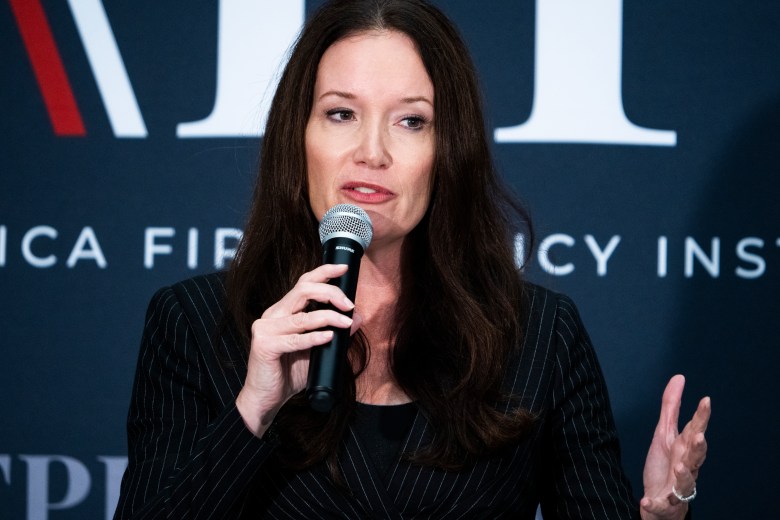
Trump’s plans: Trump and his advocates have called for dramatically cutting the Supplemental Nutrition Assistance Program, which has been vital for shrinking food insecurity and helping Black communities combating poverty.
Who is she? A Texas native, Rollins has been a central figure in Texas’ conservative movement for decades, and during Trump’s first term, she led the White House Domestic Policy Council.
Rollins was the president of the Texas Public Policy Foundation, a conservative think tank, for 15 years, starting in 2003. In that role, she advocated for various conservative causes, such as school choice, which critics have said takes money from poor Black public schools. In 2021, Rollins helped to launch the America First Policy Institute, a pro-Trump think tank that’s expected to play an influential role in the next administration.
Kash Patel, FBI Director
Responsibilities: Patel would lead the country’s top law enforcement agency and be in a position to harass Trump’s political opponents.
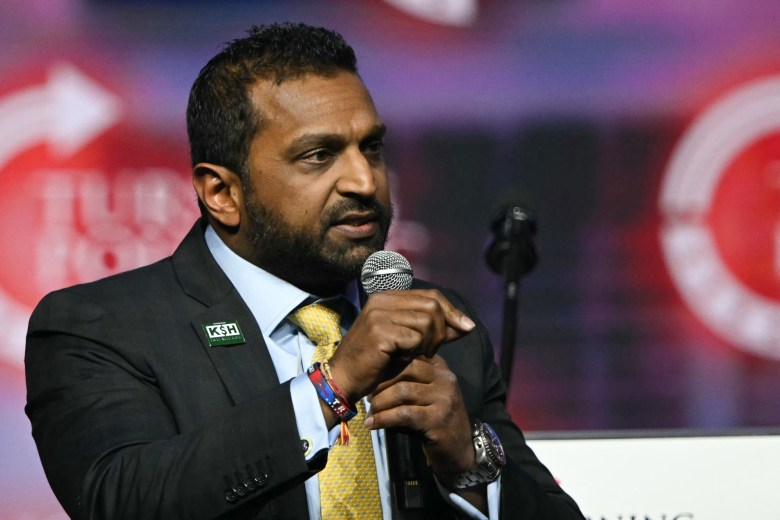
Trump’s plans: For years, the president-elect has disparaged the FBI, maintaining that it’s “badly broken” and has “lost the confidence of America.” Trump’s plan to fire and replace the current FBI director — Christopher Wray — with Patel, an arch-conservative Trump loyalist, tracks with his desire to hollow out the FBI and staff it with people who will serve as attack dogs, going after the president-elect’s perceived enemies.
Who is he? A former federal prosecutor at the DOJ and the former chief of staff to the secretary of defense during Trump’s first term, Patel is a controversial figure even within conservative circles.
Like Trump, Patel has pledged to take on what he and other conspiracy theorists call the “deep state,” a reference to the baseless belief that a cabal of career government employees is plotting to sabotage the work of elected officials and undermine Trump. Patel would politicize the FBI, and has openly talked about harassing and investigating government officials and journalists: “We’re going to come after you,” he said last year. “We’re putting you all on notice.”


